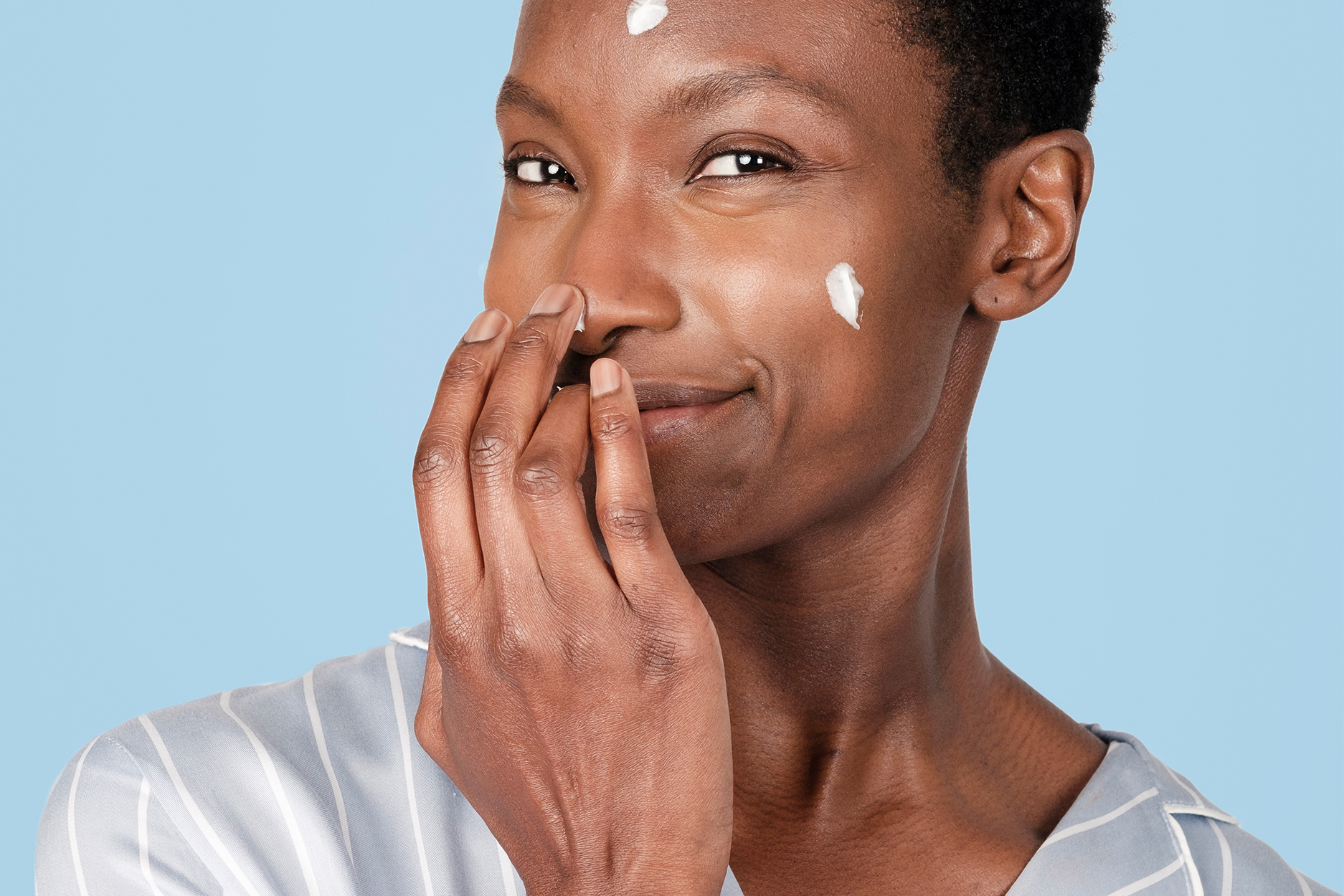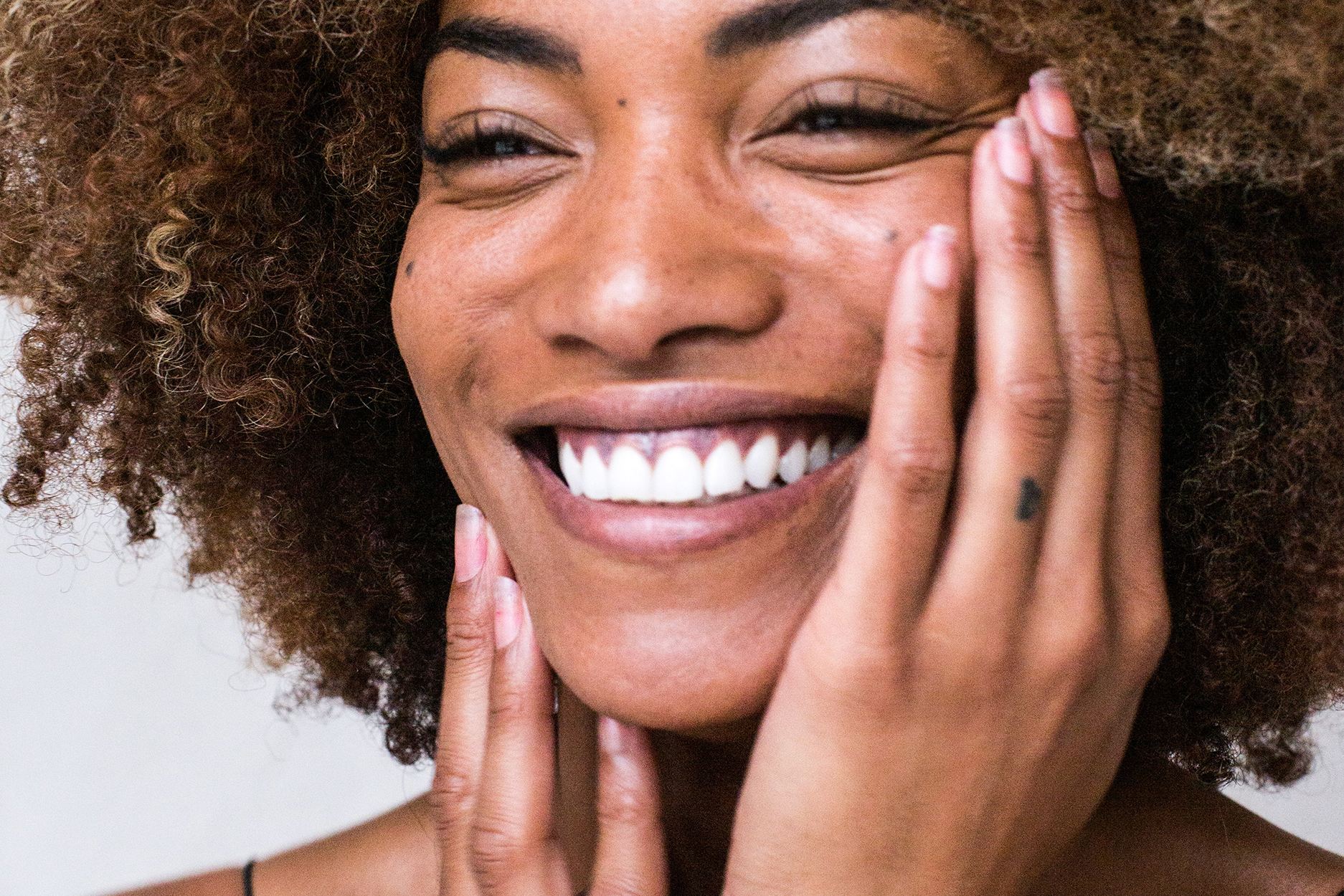You’re Invited! Join The Party At John Lewis

Link to share article here:
Ask A Dermatologist: Sun Protection And Skin Cancer
Did you know that May is Skin Cancer Awareness Month? This means it’s the perfect time to boost your sun care knowledge and learn about the best ways you can protect yourself and your loved ones.
According to the NHS, melanoma – a serious type of skin cancer – is the fifth most common form of cancer in the UK. Cases are rising every year, and Cancer Research reported that one in 35 UK males and one in 41 females in the UK will be diagnosed with melanoma in their lifetime. Exposure to UV light, from the sun or from tanning beds, is the leading cause of melanoma – so, it’s essential that your skin is well protected.
Practising safe suncare is your first line of defence against skin cancer.
Practising safe suncare is your first line of defence against skin cancer – and no surprise, this involves wearing a great sunscreen every single day. We created the Skin + Me Daily Defence Oil-free Sunscreen SPF 50 to suit every skin tone and type. It protects against both UVA and UVB rays, melts into your skin without a trace and can be worn as a primer under makeup. Find out more about our hero product here.
We also asked Consultant Dermatologist, Dr Ben Esdaile to share his sun care know-how. Read on for his expert advice on skin cancer, sun protection and the symptoms of photodamage.
Skin + Me: What’s the definition of skin cancer and who is susceptible to skin cancer?
Dr Ben Esdaile: There are two main types of skin cancers, melanoma and non-melanoma skin cancer.
Melanomas are cancers of the mole-producing cells in the skin, known as melanocytes. Non-melanoma skin cancers arise from other cells in the skin.
The most common type of non-melanoma skin cancers are basal cell carcinomas and squamous cell carcinomas. Non-melanoma skin cancers are technically the most common type of cancer in the world.
Most non-melanoma skin cancers are caused by exposure to the sun. The ultraviolet light (UVB and UVA) causes damage to the DNA (genetic material) of cells. Melanoma is the fifth most common cancer in the UK and the number of people being diagnosed with it keeps on increasing year on year.
Your risk for developing melanoma depends on a number of factors including genetics and environmental factors. The most significant risk factor is exposure to too much ultraviolet radiation (usually from the sun or sunbeds).
Sunburn increases your risk of melanoma and people who have used a sunbed also have an increased risk of melanoma. Your genetics are important in regards to developing melanoma. The more easily your skin tends to burn in the sun (this applies especially to people with fair skin or red hair), the higher your risk. There are also other genetic factors for melanomas and if you have a close relative with melanoma your risk is also higher.
Skin + Me: We’re all about staying out of the sun at peak times, covering up and using SPF 30+ when it comes to safe suncare. Prevention is better than cure, right? Tell us more.
Dr Ben Esdaile: As mentioned before, the most important controllable risk factor for skin cancer is ultraviolet radiation exposure from the sun and sunbeds. Ultraviolet radiation is produced naturally by the sun and artificially through sunbeds.
“The most important controllable risk factor for skin cancer is ultraviolet radiation exposure from the sun and sunbeds.”
The sun produces both UVA and UVB radiation. UVB causes burning of the skin and can also damage the DNA in skin cells, potentially leading to skin cancer. UVA penetrates deeper in the skin and is responsible for damaging the skin scaffolding, causing skin wrinkling and accelerated skin-ageing, as well as potentially skin cancer.
As sunburn increases the risk of skin cancer, the most important skin cancer prevention advice is to protect your skin from sunburn.
This can be achieved with the right clothing (for example, appropriate clothes and hats) and good broad-spectrum sunscreen that protects against UVA and UVB. During sunny days, the background UVA levels are high for most of the day. The UVB levels tend to rise at around midday, so taking extra care between 11am and 3pm is important.
In Australia, they had a campaign that said, ‘Between 11 and 3, slip under a tree’. Good sun protection also has other benefits including the prevention of early signs of skin-ageing (UVA rays damage the important scaffolding proteins) and unwanted skin pigmentation.
Skin + Me: When should you consult a dermatologist or doctor if you’re worried about your skin? What are the signs to look out for?
Dr Ben Esdaile: In terms of recognising melanoma, there are a few important things to be aware of.
About two-thirds of melanomas arise on normal skin and the most common way melanoma presents is a new mole that often looks different from your other moles.
Melanomas can also arise within existing moles and so a significant change in an existing mole is also something to look out for.
The earlier melanoma is found, the easier it is to treat, so if you have concerns it’s important to see your GP or dermatologist as soon as possible.
The melanoma ABCDE checklist
Learning what your skin looks like normally will help you to keep an eye on any potential changes. Tell your doctor if you notice a new mole or any changes to your existing moles, freckles or skin in general.
You can also look out for the signs of melanoma by using the ABCDE checklist. The earlier melanoma is found, the easier it is to treat.
A stands for Asymmetrical. Melanomas often have an uneven shape.
B stands for Border. Melanomas often have an irregular edge or border.
C stands for Colour. Melanomas tend to have a number of different colours within them (brown, black, pink, blue).
D stands for Diameter. Melanomas will tend to grow and become larger. They tend to be larger than 6mm and are often not picked up when they’re small.
E stands for Evolving. Melanomas will grow and change shape.
Non-melanoma skin cancers tend to be pink nodules, but occasionally they can have more colour. They are often initially thought to be an insect bite, but tend to grow rather than disappear. They can sometimes be quite tender, often bleed and never fully heal – so, if you notice one of these marks on your skin, you should contact your doctor.
Medical facts checked by Consultant Dermatologist, Dr Ben Esdaile
Ready to add Daily Defence to your next month of Skin + Me? Log in to your account to update your routine.
New to Skin + Me? Get your first month of personalised skincare for £4.99 with promo code DOSE – complete our quick consultation here.
Looking for a routine refresh? Add the Dream Routine to your Skin + Me subscription.
In need of a restock? Head to The Skincare Shop for one-off purchases of your Routine Essentials.



